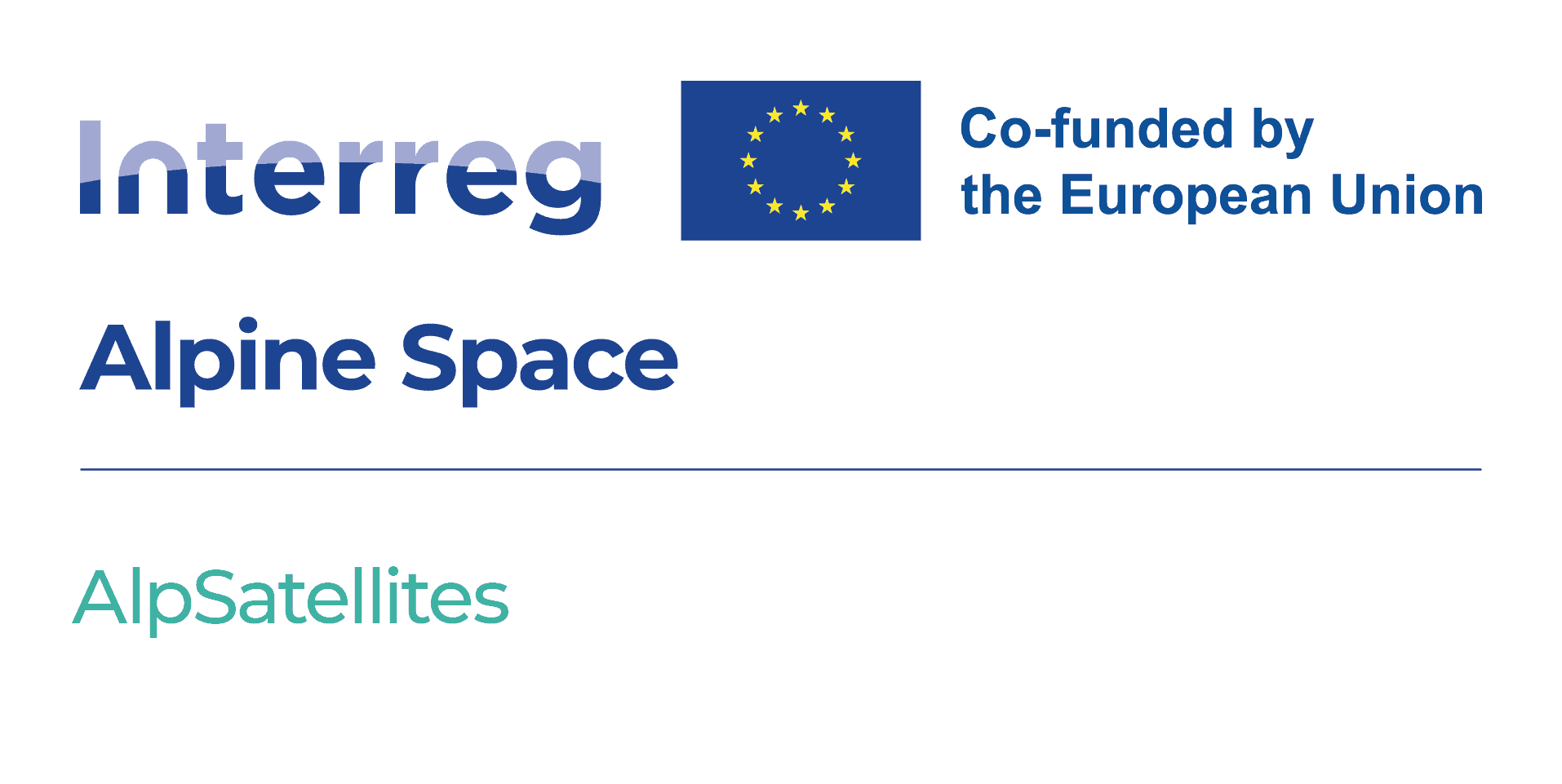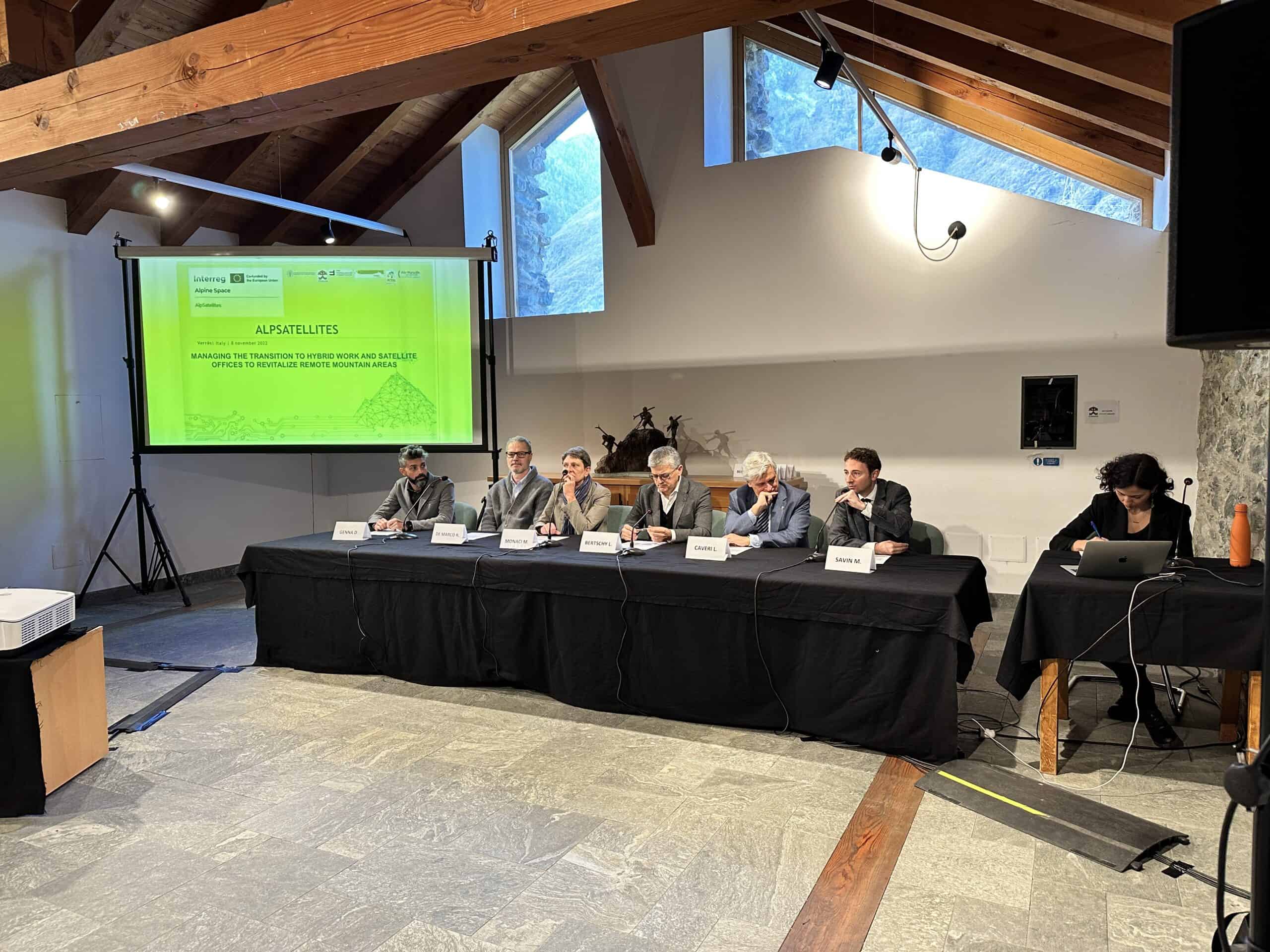
Overview
Many remote Alpine regions are experiencing population decline and ageing, while the urban-rural divide is widening. AlpSatellites analyses the opportunities and challenges of remote working in order to attract and integrate young people, workers and digital nomads in remote areas. The project partners will collaborate with local stakeholders to design adapted solutions to attract and integrate remote workers, thanks to digital workplaces and telecommuting. They will create new opportunities for the digital, economic, and social development of their communities by making peripheries attractive places for both people and businesses.
Factsheet
- 2021 – 2027
- Innovation and digitalisation supporting a green Alpine region
- SO 3.2 - Reaping the benefits of digitisation for citizens, companies, research organisations and public authorities
-
- AG2 Economic development
- AG3 Labour market, education and training
- AG5 Connectivity & accessibility
- 09/2022
- 02/2024
- 674.701 EUR
- 506.025 EUR
Description
AlpSatellites is designed to prepare a shift to digital workplaces and telecommuting in the Alps. The project wants to explore remote working and telecommuting as an opportunity to mitigate negative demographic trends by attracting new residents and by supporting them in settling down.
Outcomes
-
Policy guidelines“Enabling a remote-working ecosystem to make remote areas thrive"
This output will specifically target decision and policy makers. It will be divided into 3 chapters: 1 Taking into account legal consequences of remote working solutions in the Alpine Space 2 Playing a catalyst role: how to enable the remote working ecosystem 3 Policy Takeaways: preparing the Alps regions for the “new normal”
Pilots
-
Managing the transition to hybrid work and satellite offices to revitalize remote mountain areas
AlpSatellytes is designed to prepare a shift to digital workplaces and telecommuting in the Alps. The project wants to explore remote working and telecommuting as an opportunity to mitigate negative demographic trends by attracting new residents and by supporting them in settling down. AlpSatellites's partners want to explore both the opportunities and the boundaries of remote working. L’Unité des Communes valdôtaines Evançon, Pays du Grand Briançonnais, des Ecrins and du Guillestrois/Queyras and the Municipality of Gemeinde Doren share a rural/mountain landscape, a careful management of ecosystems and a strong cultural identity. Instead of just reacting to changes like those arising from the Coronavirus pandemic, these communities want to shape those changes by creating new opportunities in the digital, economic, and social fields. University of Valle d'Aosta, Aix-Marseille University and FHV University will help the three target territories to carry out these goals by combining scientific research with co-creation. A comparative analysis of the target territories’ level of readiness for telecommuting is combined with collaboration with local stakeholders in designing the best solutions to attract and integrate remote workers. The feasibility, scalability and impact of these solutions are then assessed through transnational cooperation. AlpSatellites will contribute to Eusalp: Contribution to EUSALP AG: by supporting policymakers and local communities in enhancing conditions for remote working as a way of improving the attractiveness of the territories, Alpsatellites will contribute to the work of the Action Groups 2, 3 and 5 on economic development, labour market, and connectivity in the Alpine Areas. AlpSatellites contributes also to the European Green Deal and its target of making EU climate neutral by 2050. The achievement of this goal requires a cut 90% of emissions from transport by 2050. Working remotely might reduce emissions and might increase the use of light and green means of transport for short trips.
Project calendar


